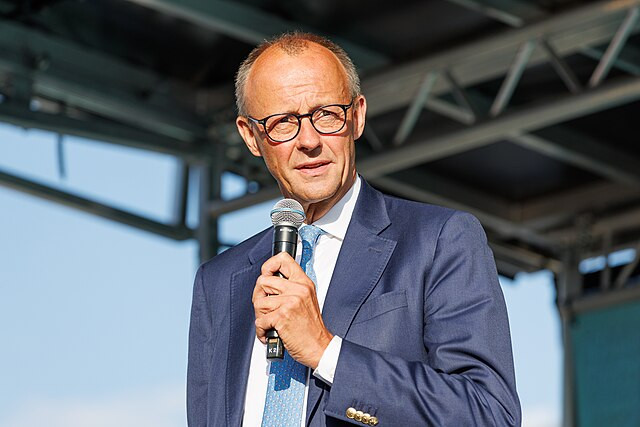German Chancellor Friedrich Merz drew sharp criticism this week after making contradictory remarks about supplying Ukraine with long-range Taurus missiles, casting a shadow over President Volodymyr Zelensky's visit to Berlin and exposing divisions within Germany's governing coalition.
On Monday, Merz appeared to indicate that Germany had lifted restrictions on how far weapons provided to Kyiv could be used. "There are no more range limitations for weapons delivered to Ukraine. Neither from the Brits, nor the French, nor from us. Not from the Americans either," Merz said. The statement was widely interpreted as a signal that Berlin would authorize the transfer of Taurus missiles, which can strike targets over 500 kilometers away-deep inside Russian territory.
But on Tuesday, Merz clarified that his remarks referred to a broader Western consensus reached months ago. "Ukraine has the right to use the weapons it receives, even beyond its own borders, against military targets on Russian territory," Merz said, backing away from any specific commitment.
His explanation did little to calm critics. Roderich Kiesewetter, a senior Christian Democratic Union (CDU) lawmaker, accused the chancellor of weakening Europe's stance. "There is no sign of Germany finally delivering Taurus cruise missiles, because I still see no unity in the coalition and no political will to respond appropriately and with strength and consistency to Russia's massive escalation," Kiesewetter wrote on X. "Such statements are therefore not helpful overall because they highlight Europe's weakness to Russia."
Finance Minister Lars Klingbeil, a leader in the coalition's Social Democratic Party (SPD), dismissed any suggestion that a policy change had taken place. "There is no new agreement that goes beyond what the previous government had in place," Klingbeil told reporters.
The controversy comes as Zelensky renews calls for expanded German military support. During a joint press event, Merz refrained from explicitly naming Taurus missiles but stated, "We want to talk about production and we will not publicly discuss details." He also announced that the German and Ukrainian defense ministers would sign a "memorandum of understanding" on long-range missiles later Wednesday.
The Kremlin warned against any moves to supply Ukraine with missiles capable of striking deeper into Russian territory. Kremlin spokesperson Dmitry Peskov called it a "quite dangerous change in policy."
Meanwhile, the battlefield pressure on Ukraine has intensified. Zelensky said Russia launched more than 900 drones over a three-day period ending Monday and is amassing over 50,000 troops along the Sumy front in northeastern Ukraine. Sumy Governor Oleh Hryhorov confirmed that Russian forces had seized four villages and were continuing operations near the border.
Talks between Russia and Ukraine resumed earlier this month in Istanbul for the first time in over three years. While negotiators agreed to a prisoner exchange, a broader peace deal remains elusive. Zelensky called for a summit involving "Trump-Putin-me," though Moscow has not committed to such a format.
Zelensky has urged the United States to impose new sanctions on Russia's banking and energy sectors. "If Russia does not stop, sanctions will be imposed," he said, following talks with President Donald Trump.
Despite German hesitation, Zelensky emphasized that supplying Taurus missiles could shift the balance. "Taurus could provide relief, at least in part, and thus protect the civilian population in Ukraine if the system were supplied in larger numbers," Kiesewetter wrote. "A massive response against RUS is NEEDED NOW to maintain credibility."






